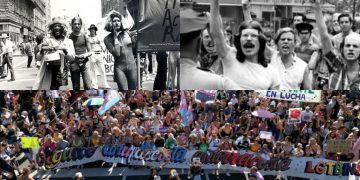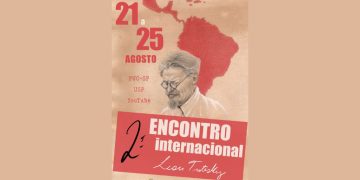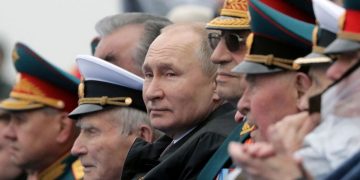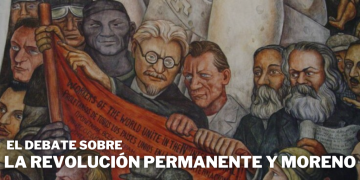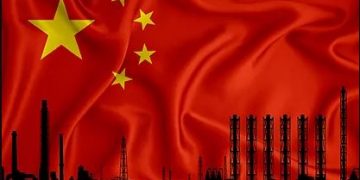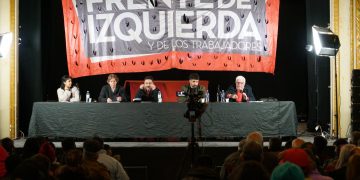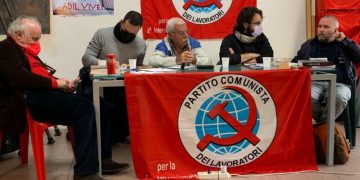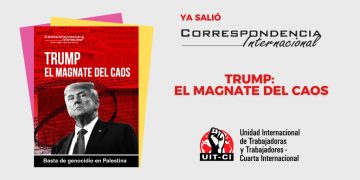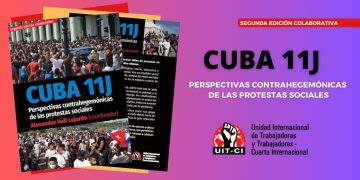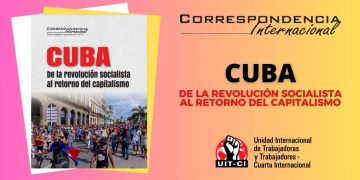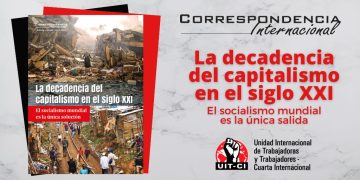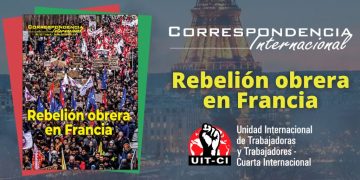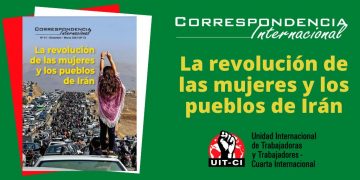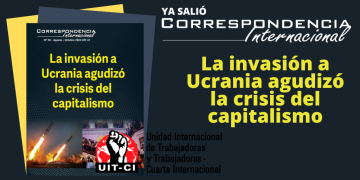The Cuban revolution was for decades a reference point for anti-imperialist and socialist fighters in the world. But it has for some time quitted being such a reference. Calls to make new revolutions can no longer be heard. The Cuban government has not supported the Arab revolutions and defended, in fact, the dictators of Libya and Syria against their people and it is known that foreign investment and social inequality are growing.
The sad reality is that the Cuban leadership, under the false slogan of «we are updating the socialist model», has spent years dismantling the achievements of the socialist revolution of the 1960s and consolidating a «Cuban style» capitalist restoration.
With predictable unanimity, the VI Congress of the Communist Party of Cuba (CPC) on April 2011 endorsed a mass layoff (albeit gradual) and capitalism of joint ventures that has been working for years.
In his reflection, Fidel Castro insisted with the official slogan «Change whatever is necessary.» What are the changes that the ruling bureaucracy of the Cuban CP pushes and that were ratified by the Congress? For two decades the changes have meant openness to the restoration of capitalism. Since 1991, when the IV Congress was held, and since 1992, with the new Constitution they abandoned the pillars of the «socialist model» that had emerged from the revolution and that had led the Cuban people, although with significant limitations and without freedom, to unparalleled achievements in the field of health, education and sports. They began abandoning the monopoly of foreign trade, started decentralizing economic planning and restored the right of foreign multinationals (ejected since 1960-1961) to investment, through joint ventures; all basic workings of capitalism.
Joint ventures are capitalism
Since then, with comings and goings, with the direct support of European imperialism, mainly from Spain and Canada, capitalism has been rebuilding in Cuba. These are the facts, historical and irrefutable, that the Castro brothers hide with their falsehoods and lies.
It is Capitalism the existence of joint ventures in the main areas of the Cuban economy:
• In nickel and cobalt (Cuba ranks first and second in the world in reserves) stands out the Cuban-Canadian company Metalurgica de Moa, with the multinational Sherritt.
• Tourism has been one of the most dynamic and growing areas since its restructuring in the 1990s with foreign companies. Large corporations to stand out are Cubanacan and Gaviota, with shares of Cuban capital, private and state. The 48% of the approximately 42,000 rooms is managed by foreign companies. Among the most important companies are the Spanish Sol-Meliá and the Barceló group. Cuban private entrepreneurs supply 68% of inputs to tourist facilities.
• In oil exploitation, in 1999 it opened its 112,000 km2 zone in the Gulf of Mexico to foreign companies. Participating: Repsol-YPF, Petrobras, Ocean Rig (Norway), Petrobras with Sherritt Gordon (Canada, first in oil and gas). Energas (Cuban-Canadian) produces electricity with the gas extracted.
• In tobacco and cigar production, there is Habanos SA, founded in 1994. This is an equal Joint venture between the state company Cubatabaco and Altadis, a Spanish company, owned by the British group Imperial Tobacco Group, a multinational company that has 80% of the world market for cigars.
• In 1993 the Corporation Cuba Ron SA was formed, for the production, marketing and export of traditional Havana Club, formed by Cuban businessmen and the French Pernod Ricard (famous for Chivas Regal whiskey). Today, Havana Club reaches 100 countries and the company is among the 20 best-selling in the world in the field.
It is capitalism to overcharge with taxes thousands and thousands of poor Cubans trying to become self-employed because they have been made redundant. Nothing is reported or discussed on the taxes paid by multinationals, or how much the juicy profits sent to their headquarters amount to. This amidst starvation wages of between US$ 15 and 20 per month, some of the lowest in the world.
The well-known official economist Omar Everleny Pérez Villanueva honestly summarized the situation and the «changes» of Fidel and Raul in Le Monde Diplomatique: «Yes, there are people who will lose from the reforms. Yes, there are people who will be unemployed. Yes, inequality will increase. […] These inequalities already exist, what we have today is a false equality. What is at issue now is who really deserves to be higher» (No. 142, April 2011).
From the socialist achievements of the 1960s to the abandonment of the revolution
There are sectors that claim to be from the left which now are political campaigning that nationalization is no longer the go, that there is no need to expropriate, that it is necessary to give space to «various forms of ownership.» Regarding today’s Cuba, they do not question the official line of «updating socialism», they ignore or deny the immense facts that prove the return to capitalism and are fans of the small capitalist enterprise, via cooperatives. They want to liberalize thoroughly, towards a «new democratic socialism», but with a «more open» economy.
The great thing about the Cuban revolution was their advance towards the rupture with the bourgeoisie and imperialism, in the heat of the mobilization of the workers and the people. It was this revolution that pushed Castro to radicalize the land reform, freeze rates and rents, expropriate the distilleries, sugar mills and banks, and to break with the U.S. That «centralization» was a historic achievement: the implementation of the national economic plan based on state ownership, with the monopoly of foreign trade and nationalizations. And so that health and education which put Socialist Cuba in one of the first places in Latin America were achieved.
Those gains were achieved despite the existence of a privileged and repressive bureaucracy. The best proof of what we say was given by Che Guevara, who always fought bureaucratization and publicly denounced it, with his visceral and genuine egalitarianism.
But the Castros became subordinated to the bigger bureaucracy, the colossal apparatus of the Communist Party of the Soviet Union. In their hand, they moved away from the revolutionary and internationalist path of the early years and from the Che.
Never again did they encourage new socialist victories in Latin America, supporting «peaceful coexistence» and the covenant of the Russian bureaucrats with imperialism. They supported the crushing of the revolution of the Czech workers in 1968. They joined the reactionary and suicidal «peaceful road to socialism» of the Communist and Socialist parties in Chile, which paved the way for Pinochet in 1972. In 1979, Castro called the Sandinistas in Nicaragua not to make a new Cuba. In 1981 they supported the Jaruzelski coup against the Polish workers.
Another would be the reality of Cuba and Latin America if all the prestige and power of Castro had been in the service of achieving new socialist countries on the continent. Putting Latin American wealth in the service of their peoples, not the multinationals and imperialism. And without monolithic and single party, but with democracy and freedoms for the struggling masses to organize, discuss, rectify errors and strengthen the successes.
Even so, with blows or setbacks, morality and conscience of the people could have continued to advance, building a revolutionary socialist alternative. There were many ruined opportunities. For all this, historically our current along with unconditionally defending Socialist Cuba, always denounced the betrayal of the Castro leadership.
The fight for a new socialist revolution is on the agenda
Today in Cuba grows the anger and disappointment of the people. And so the danger is created of reproducing the setbacks in consciousness that occurred in the former Soviet Union and Eastern Europe, where pro-restoration advances, encouraged by the own bureaucracy, did not do anything else but creating in the masses fatal illusions in capitalism. The great challenge is to fight for a new socialist revolution.
In the program of revolutionary socialists no longer is enough the rejection of the blockade and the essential solidarity with the Cuban people. It begs the fight for a new socialist revolution to reverse the economic and social change to capitalism imposed by the Castros; along with the fight against the dictatorial regime to impose political freedoms for all people.
We encourage the mobilization of labour, popular, students and peasants to demand a living wage, ending with US$ 10 or US$ 15 of the current state salary. For a minimum of 250 or 300 convertible pesos (CUCs), abolishing the evil system of dual currency. No more shops and markets for the rich and others for the poor. Enough of special salaries and privileges for the ruling bureaucracy.
More investment in health and education. No to capitalist enterprises, whether mixed or completely private. For the re-nationalization of large enterprises under workers control and management, in the context of a single centralized plan.
Full rights to mobilize and for the independent organization of workers, peasants and students. Right to dissent, protest and strike. Full independence of the unions from the state and the government. For workers democracy to make their claims, change leaders and form new unions.
Full freedom for the Cuban people, nothing for the «gusanos» (worms) in Miami. Enough of political prisoners; against one-party rule regime and for the free formation of political parties. Complete freedom to enter and leave the country to all Cubans, with a simple and free process. Free use of Internet; no to the censorship of music, art and information. Freedom for young people, with the right to organize student centres and to demand freely their claims.
For a national economic plan that starts with recovering the monopoly of foreign trade, eliminates the current dual currency system and gives immediate and substantial increase in wages. For a new economic planning with workers democracy, that attacks social differentiation, the corruption of those above and reverses the capitalist restoration. To recover the accomplishments achieved in health and education in the early years of the revolution. The government of the Castros and the CPC is not in the service of the Cuban people, it needs to be replaced, with mobilization, with a government of the workers, to achieve true socialism with workers democracy. For it, we encourage the building of a new revolutionary leadership, a new socialist party to resume the banners of Che and the early years of Socialist Cuba.











